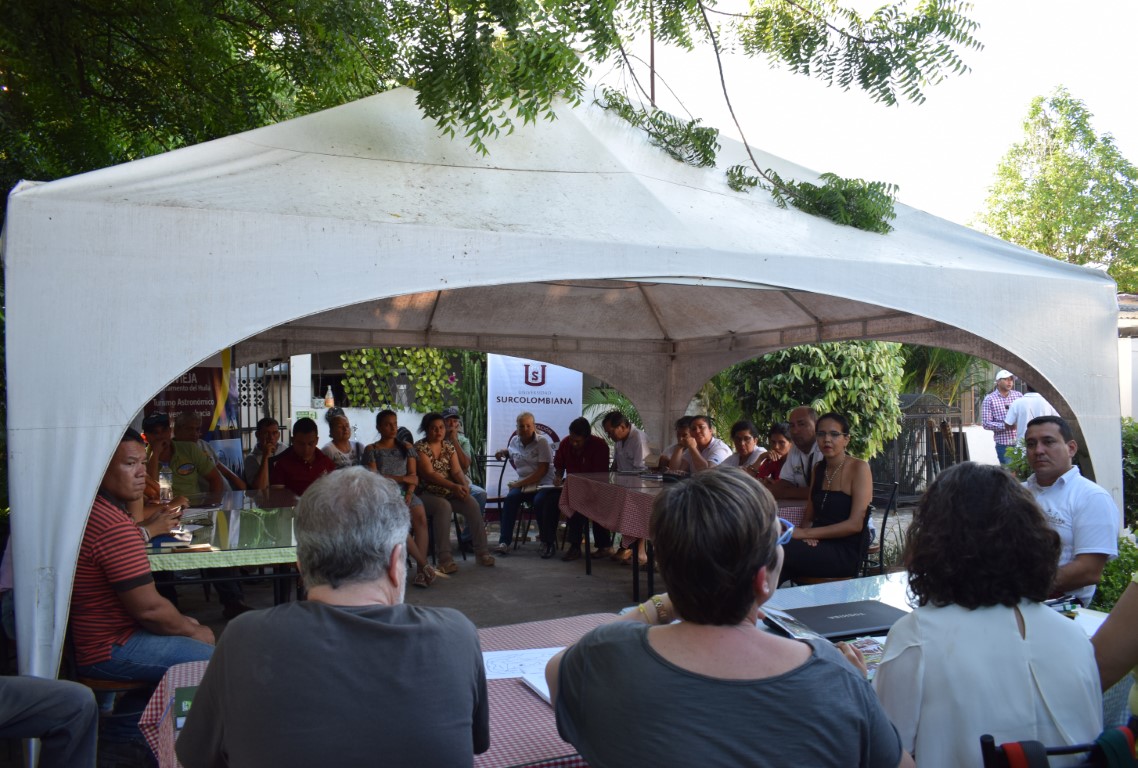01/08/2019
The URV cooperates with countries in Latin America to develop emerging tourism destinations
The GRATET Research Group, with the support of URV Solidària, provides the working methodology so that local stakeholders can draw up a tourism plan

The GRATET Research Group, with the support of URV Solidària, provides the working methodology so that local stakeholders can draw up a tourism plan
Tourism and in particular the stimulus it provides to protected areas are a key to development of emerging countries, provided it is accompanied by innovation in the productive sectors. With this premise in mind, in 2002 researchers from the GRATET research group (Department of Geography), students and alumni from the Faculty of Tourism and Geography began to collaborate with countries in Latin America, first with funding from the Spanish Agency of International Cooperation and Development and then with URV Solidària from 2008. To date, they have worked on 9 collaboration projects.
Cuba, Brazil, Panama, Colombia and Costa Rica are all countries that the University has collaborated with. “The role of the researchers in the collaboration is to analyse the situation, the challenges and limitations and the contribution of training so that the area or country itself can design the strategies that it needs for its own tourism development, because each region has certain characteristics and different dynamics”, explains Professor Marta Nel-lo, who promotes the projects.
At the end of August she will head for a second time to the Department of Huila in Colombia along with Alba Font, who is currently a student on the Master’s Degree in Tourism Destinations Management. It is clear to them that “protected areas have a key role in development because they both preserve the territory and attract people to it. The overall strategy is to obtain ecosystem benefits through protection and conservation”. Consequently, during the first collaboration project with the area they drew up and evaluated proposals for the desert of Tatacoa and now they are going to do the same in the south of the region, which has one of the most important archaeological sites in the country.
The University provides the working methodology
The role of the University, however, must be to act as a catalyst: “We provide the working methodology and even proposals for urgent action, but it needs to be the local public and private stakeholders who lead the destination’s tourism planning process”, says Nel-lo.
This is the case with Colombia, the latest place where they have worked. First they worked with political leaders, the administration that governs the protected spaces and local private stakeholders to analyse the protected desert of Tatacoa, where tourism activities were taking place without regulation or planning. Through the subsequent field work they observed how the area was exploited and through participatory workshops they obtained information from the local population, farmers and tourism workers. With all of this information they were able to make an analysis of the situation along with proposals for the most urgent steps that needed to be taken (improving water quality, access and food safety) and strategies such as planning the creation of the tourism product.
Nonetheless, Alba Font points out that “tourism can be one of the solutions for development, but it has to be accompanied by innovation in agriculture and farming”, the two productive sectors in the desert.

Projects such as this are partly funded by the URV Solidària Committee’s funding competition for development collaboration projects proposed and led by members of the University Community.
Transfer and training in international networks
Collaboration focused on tourism led in 2008 to the creation of the International Network of Researchers in Tourism, Cooperation and Development (COODTUR), initially promoted by the University of Lleida and currently coordinated by Marta Nel-lo from the GRATET Research Group. It is a network of more than one hundred researchers that enables them to transfer their research on tourism and development. They exchange knowledge during the network’s biennial conference, which provides the basis for future projects.
University training plays an important role in promoting tourism for the development of a country and recently the Ibero-American University Postgraduate Association (AUIP) has recognised the COODESTUR network, created on the same principle of development cooperation, but based on tourism training also led by the URV. It is made up of 49 researchers in 13 countries.
More news about: GRATET, URV Solidària
